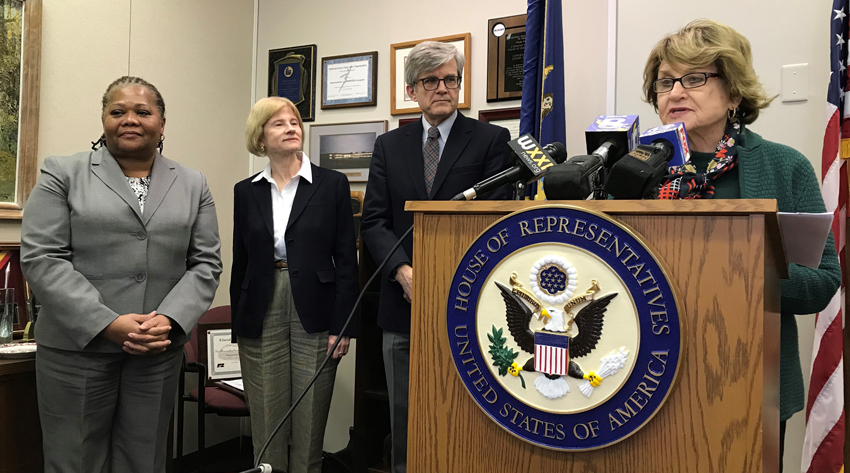News
Jean Bidlack Featured on WXXI's Second Opinion
Wednesday, November 28, 2018
Professor of Pharmacology and Physiology, Jean Bidlack, Ph.D. and her research were recently featured on WXXI's Second Opinion.
The Medical Innovations segment will air with the "Alcoholism" episode on WXXI where Dr. Bidlack discusses how when dopamine levels spike in the brain, it leads to the very strong reinforcing properties of addiction.
The program will air Thursday January, 3rd at 8:30pm but can be viewed below as well.
This is how a brain gets hooked on opioids like it craves a candy bar
Friday, February 23, 2018
Eating a candy bar and injecting heroin each trigger a part of the brain that reinforces feeling good.
“Pleasure is pleasure,” said Jean Bidlack, a researcher at the University of Rochester Medical Center who is looking at a different way to treat opioid addiction.
While much of current thinking is focused on opioid receptors, Bidlack is going to look at how the neurotransmitter dopamine affects the desire for drugs.
“A candy bar will give you a little bit of dopamine release and give you pleasure,” said Bidlack, a professor of pharmacology and physiology. Regular ingestion can turn into a habit, but stopping isn’t likely to fundamentally change your life.
“Drugs of abuse like opioids will give you a very high dopamine level,” Bidlack said. “The brain adapts and says, ‘I want that high dopamine level all the time.’ And then when you don’t have it, that’s when the craving is very, very strong.”
Bidlack Receives NIH Grant For Opioid Addiction Research
Tuesday, February 13, 2018

From left: Dr. Janice Harbin, CEO at Anthony L. Jordan Health Center, Dr. Jean Bidlack, Mr. Michael Leary, CEO at Regional Primary Care Network, and Louise Slaughter.
A groundbreaking treatment for opioid addiction could come from local research. Monday, Congresswoman Louise Slaughter announced a $200,000 award from the NIH to a University of Rochester lab that is studying a possible new treatment for addiction.
Dr. Jean Bidlack of the University of Rochester Medical Center is involved in the research. “What I’m looking at is a hormone that has been shown in animals to reduce both the preference for sweets and alcohol by decreasing dopamine levels,” Dr. Bidlack explained. The money for the research of part of the federal budget approved last week.
The actual award is for 2 years, totaling of $385,000.
Congratulations Dr. Bidlack!